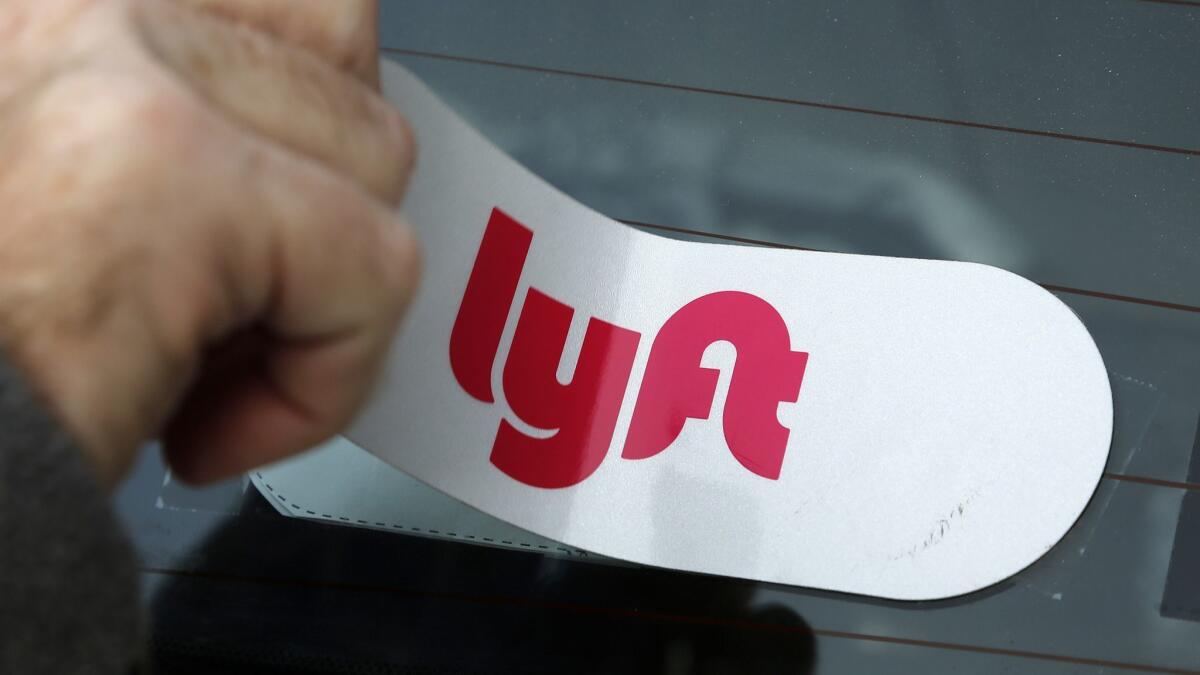Lyft files for IPO, racing ahead of rival Uber

In the race among ride-hailing companies to go public, Lyft Inc. has pulled out ahead of rival Uber Technologies Inc. and confidentially filed for an initial public offering.
San Francisco-based Lyft has submitted early-stage documentation for its IPO, according to a statement Thursday. It has not yet determined how many shares it will sell in the listing or the potential price range for the stock.
Ride-hailing companies have attracted billions of dollars in venture capital, and 2019 will test whether the money-losing businesses match up to wider investor scrutiny. Uber is aiming for an IPO in the first half of the year, people familiar with the matter have said. Yandex.Taxi — Russia’s largest ride-hailing service, which is part-owned by Uber — is also looking to list in 2019.
Lyft is working with JPMorgan Chase & Co., Credit Suisse Group AG and Jefferies Financial Group Inc. to lead an IPO in the first half of next year, people familiar with the matter said in October. Those banks have pitched valuations for the company ranging from about $18 billion to $30 billion, the people said.
According to Thursday’s statement, the IPO is expected to start after the Securities and Exchange Commission reviews the filing. Lyft, which had a loss of $254 million in the third quarter of last year, may plan to list in March or April of 2019, people familiar with the matter have said.
Lyft has been building up its executive ranks. Anthony Foxx, who was U.S. transportation secretary under then-President Obama, joined the company in October to help it navigate new regulatory roadblocks across the United States. The same month, Dan Katz, who was chief of staff at the Transportation Department under Foxx, joined as senior director of public policy.
Lyft announced in June that it had raised $600 million in a round led by Fidelity Investments at a $15.1-billion valuation. Its investor roster includes Alphabet Inc.’s private-equity arm CapitalG, KKR & Co. and Baillie Gifford.
Co-founded in 2012 by Logan Green and John Zimmer, Lyft has been battling Uber for drivers and riders across the United States. While Uber has since expanded globally, Lyft has concentrated on its domestic market. Both continue to spend heavily on discounts for riders and bonuses for drivers.
Fournier and Turner write for Bloomberg.
More to Read
Inside the business of entertainment
The Wide Shot brings you news, analysis and insights on everything from streaming wars to production — and what it all means for the future.
You may occasionally receive promotional content from the Los Angeles Times.










